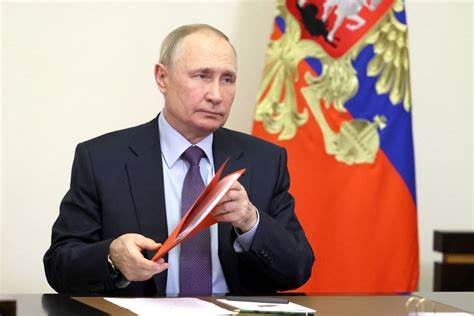On October 18, Russian President Vladimir Putin addressed the possibility of Ukraine acquiring nuclear weapons, asserting that Russia would not permit such a development. This statement followed comments made by Ukrainian President Volodymyr Zelenskiy, who suggested that Ukraine, having relinquished its Soviet-era nuclear arsenal, required either NATO membership or nuclear capabilities to ensure its security against potential threats from Russia.
During a conversation with U.S. presidential candidate Donald Trump, Zelenskiy expressed Ukraine’s need for stronger defence measures, implying that NATO membership was crucial for deterring aggression. However, he later clarified that he did not intend to imply that Ukraine was actively pursuing the development of nuclear weapons, emphasizing that Ukraine’s stance remains non-nuclear.
Historically, Ukraine inherited a substantial nuclear arsenal after the dissolution of the Soviet Union. In the 1990s, Ukraine agreed to give up these weapons under the Budapest Memorandum, which promised territorial integrity and security assurances from Russia, the U.S., and the UK. Zelenskiy and other Ukrainian officials argue that Russia’s actions, particularly the annexation of Crimea in 2014 and the ongoing conflict in Eastern Ukraine, represent a breach of this agreement.
Putin’s remarks suggest that any attempt by Ukraine to obtain nuclear weapons would prompt a significant response from Russia, highlighting the heightened tensions in the region and the complex security dynamics at play. This situation continues to raise concerns among international observers regarding nuclear proliferation and the balance of power in Eastern Europe.
/cdn.vox-cdn.com/uploads/chorus_image/image/70562732/GettyImages_1238768051.0.jpg)
The ongoing dialogue between Ukraine and NATO allies indicates a broader strategy by Ukraine to seek enhanced security guarantees amidst escalating threats from Russia, further complicating the geopolitical landscape.

